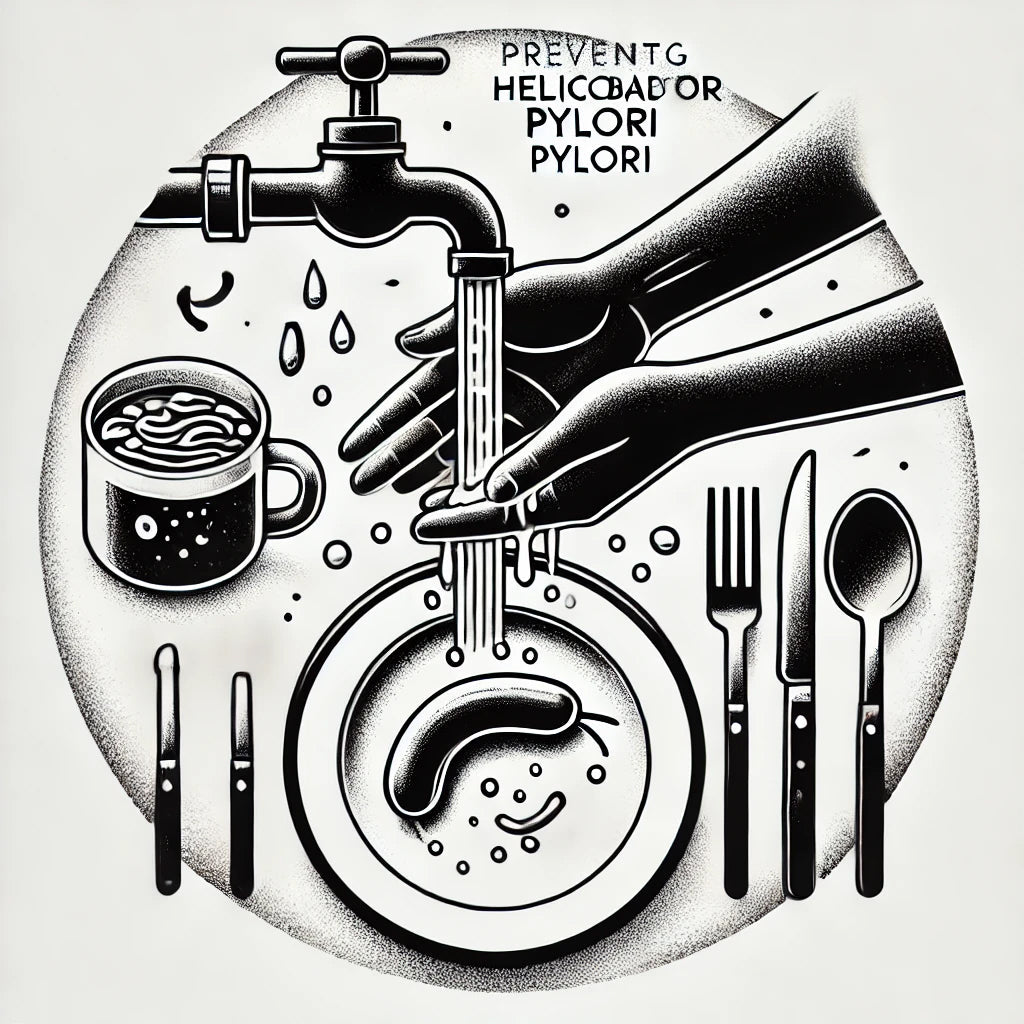
What is Helicobacter Pylori (H. pylori)?
Share
Helicobacter pylori, commonly known as H. pylori, is a type of bacteria that can infect the stomach. It is one of the most common bacterial infections worldwide, affecting nearly half of the global population. While some people may never experience symptoms, H. pylori is a major cause of stomach ulcers and other digestive issues.
How Do You Get H. pylori?
H. pylori is usually spread through:
Contaminated food and water – Eating food or drinking water that contains the bacteria.
Close contact – Sharing utensils, kissing, or being in close contact with someone who has H. pylori.
Poor hygiene – Not washing hands properly after using the restroom or before handling food.
Symptoms of H. pylori Infection
Many people with H. pylori infection do not have any symptoms. However, when symptoms do appear, they can include:
Stomach pain or burning sensation – Especially when the stomach is empty.
Bloating – Feeling uncomfortably full.
Nausea – Feeling like you need to vomit.
Loss of appetite – Not feeling hungry as usual.
Unexplained weight loss – Losing weight without trying.
Frequent burping – More than usual burping after meals.
If left untreated, H. pylori can lead to more serious conditions such as ulcers, gastritis (stomach inflammation), and even stomach cancer.
How is H. pylori Diagnosed?
Doctors can diagnose H. pylori using different tests, including:
Breath test – You drink a special liquid and breathe into a bag; doctors check for bacteria-related gases.
Stool test – A sample of your stool is analyzed for H. pylori.
Blood test – Checks for antibodies against the bacteria.
Endoscopy – A small camera is used to look inside your stomach and take a sample.
Treatment for H. pylori
If you test positive for H. pylori, treatment usually involves:
Antibiotics – A combination of two or more antibiotics to kill the bacteria.
Stomach acid reducers – Medications like proton pump inhibitors (PPIs) to reduce acid and help healing.
Lifestyle changes – Avoiding spicy foods, alcohol, and smoking to support recovery.
Most people are cured after a couple of weeks of treatment, but follow-up testing may be needed to confirm the bacteria is gone.
How to Prevent H. pylori Infection
You can reduce your risk of infection by:
Washing hands frequently – Always wash your hands before eating and after using the bathroom.
Eating safe food – Avoid undercooked or unhygienic food.
Drinking clean water – Ensure your water source is safe.
Avoiding sharing utensils – Use your own cutlery and dishes when eating with others.
H. pylori is a common but treatable infection. If you experience persistent stomach discomfort, it’s a good idea to get tested. Early detection and treatment can help prevent complications and keep your digestive system healthy.
If you suspect you might have H. pylori, consult a healthcare professional for advice and testing.
